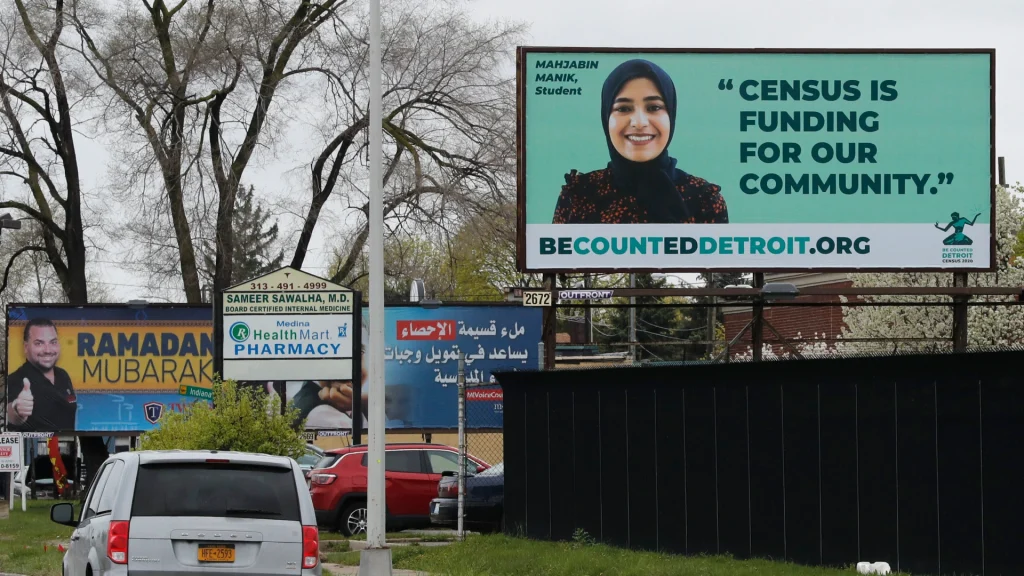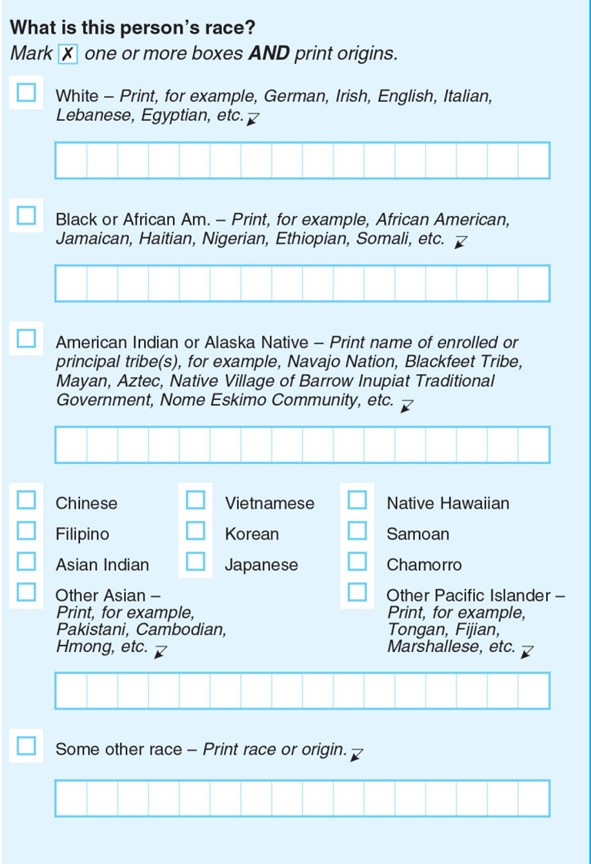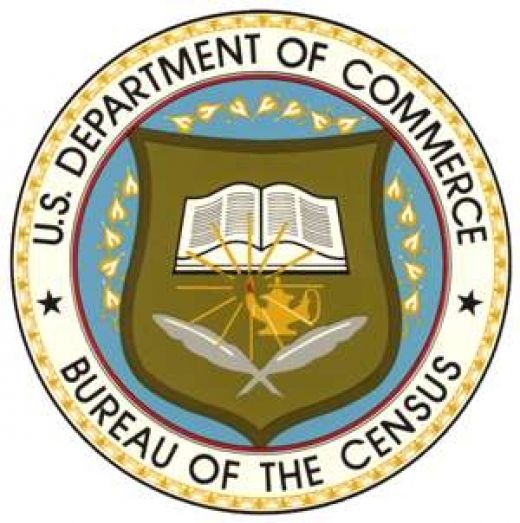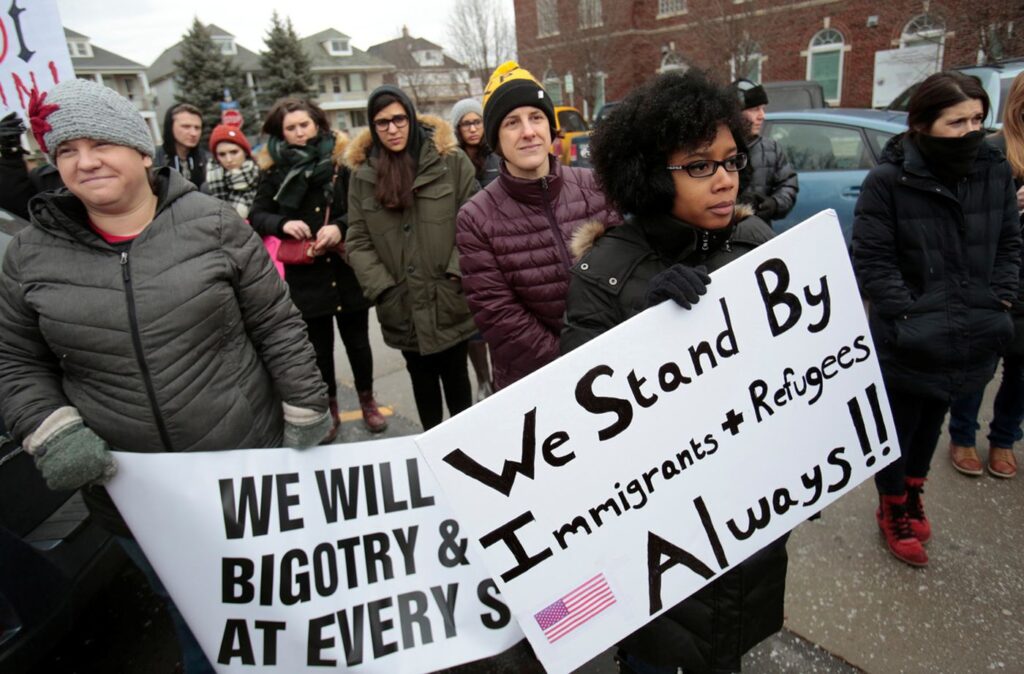‘Déjà Vu’ All over Again—Arab Americans may finally get their own Checkbox from the U.S. Census Bureau

By: John Mason / Arab America Contributing Writer
Under President Obama, in 2015, a question for the 2020 U.S. Census Bureau survey included the identification of a respondent as “Middle Eastern or North African” (MENA). Importantly, MENA as a response would not be aggregated to the much broader ‘White’ category. The Trump administration killed the question. In 2022, some Congress members requested renewal of the MENA category for the 2030 Census. Pro-Arab sentiment about the importance of the MENA tag is, captured as follows, “It’s like we always say, ‘White without the privilege.’ We’re counted as white, but we’ve never had the privilege that comes with it.”
New “Middle Eastern or North African” Census Category Better Reflects Diversity in America
A U.S. Census Bureau survey dating to 2015 included a combined question with detailed checkboxes. The question was whether the respondent self-defined as “Middle Eastern or North African.” The U.S. Office of Management and Budget (OMB) thus recommended a separate category for MENA respondents. MENA as a response would not be aggregated to the much broader ‘White’ category. The MENA checkbox would be a separate item unto itself and thus better reflect the diversity of the American population.
The use of the MENA checkbox in the 2020 census was blocked by former-president Trump. Therefore, the absence of that checkbox meant a less accurate picture of racial and ethnic data. That is the very data, according to news source Middle East Eye (MEE), “used to redraw voting districts and enforce civil rights protections, as well as guide policymaking and research.” Because many states and local governments use U.S. Census data for their own policy decisions, more accurate information is essential. OMB is expected to decide on the MENA category by 2024. In the meantime, the public has until April 12, 2023, to render its opinion.

The MENA category, to be clear, is not intended to suggest that it is the government that gives different ethnic and racial groups their identity. Arab American Institute’s executive director, Maya Berry, made that abundantly clear. As NBC News quoted Berry, “I’m ecstatic. It took decades to get here.” We’ve always said we’re not looking to a government form to give us our identity.”
Berry noted further, “But when there is no aspect of anyone’s life that is not touched by census data and your community is rendered invisible in the data when you cannot get an accurate count about it, I think it’s pretty extraordinary to understand that this initial real estate on the census form is a big deal.” Otherwise, Arab Americans and others of Middle Eastern or North African origin are lumped with the overly broad Census catchall—’White.’ Berry concluded, “It decides where trillions of dollars of federal spending goes. It affects the protection of our communities, our political representation — everything.”
Federal Proposal of MENA category, a Longtime Coming
Counting Americans by their Middle East or North African descent could transform the statistical picture of the nation’s population. First, presently the Census Bureau counts people whose origins are in the MENA region as ‘White.’ Second, according to MEE, “The reforms would also mark a major achievement for advocates of Arab Americans and other MENA groups which have long campaigned for their own checkbox.”
While some people from the MENA region identify as white, not all do so. So, third, the MENA proposal would change the definition of ‘White.’ That category would no longer include people with MENA origins. Effectively, the number of people identifying as white could decrease, thus lowering the overall count of whites in the national count. For example, someone who checks the MENA box and, at the same time, the non-white race box would lower the white count.

As long ago as 1997, OMB guidance did not add the MENA category. Rather, it reported data collected on MENA people as part of its ‘White’ identity category.
By 2015, OMB had tested using the MENA category in the 2020 census. In 2017 it proposed adding the category. As we know, the Trump administration overruled the recommendation.
In 2022, a renewal of the interest in promoting a MENA category was sparked by Congresswomen Rashida Tlaib and Carolyn Maloney. They urged OMB “to update the standards for the federal data collection on race and ethnicity to include a MENA response category.” In partial response to Congressional interest, the Biden administration has proposed major changes to forms for the 2030 census and federal government surveys. This would radically alter how Latinos and people of Middle Eastern or North African descent are counted in statistics across the United States.
None of this is set in stone. OMB will make a final decision, possibly by the summer of 2024. Recall, you can weigh in with your feedback on the MENA checkbox—by April 12.
Arab American Perspectives on the MENA Category
An NBC News release had an interesting cut on the proposed MENA category. It quoted a Federal Interagency notice on the recommended category, arguing for its importance, as follows: “many in the MENA community do not share the same lived experience as white people with European ancestry, do not identify as white, and are not perceived as white by others.”
A pro-Arab sentiment was expressed by an official of the American-Arab Anti-Discrimination Committee-ADC, “It’s like we always say, ‘White without the privilege. We’re counted as white, but we’ve never had the privilege that comes with it.” Another former official noted, “Counting us would give us a piece of the pie, resources for health, mental health, education, you name it… Small-business owners in the community would be able to take advantage of grants that we’re not entitled to because we’re factored into the white category.”

MENA Americans trace their origins to many different countries, such as Egypt, Morocco, Lebanon, Iran, Iraq, Kuwait, Yemen, and the non-country of the occupied Palestinian territories. As the NBC News report noted, “The region is racially and ethnically diverse, and people descending from there can be white, brown or Black, as well as identify with an ethnic group, like Arab, Amazigh (North African Berbers), Kurdish, Chaldean and more.”
A final expression by the ADC official captures perfectly the feelings of Americans of MENA origin: “For generations, we’ve gone unnoticed, uncounted and have been made to feel like our identity didn’t matter.” The MENA checkbox in the next census “would be enormous for us.”
Sources:
“Biden administration proposes Mena category to US census,” Middle East Eye, 1/26/2023
“Federal proposal of ‘MENA’ category long overdue, advocates say,” NBC News, 1/29/2023
John Mason, PhD., who focuses on Arab culture, society, and history, is the author of LEFT-HANDED IN AN ISLAMIC WORLD: An Anthropologist’s Journey into the Middle East, New Academia Publishing, 2017. He has taught at the University of Libya, Benghazi, Rennselaer Polytechnic Institute in New York, and the American University in Cairo; John served with the United Nations in Tripoli, Libya, and consulted extensively on socioeconomic and political development for USAID and the World Bank in 65 countries.
Check out our Blog here!









